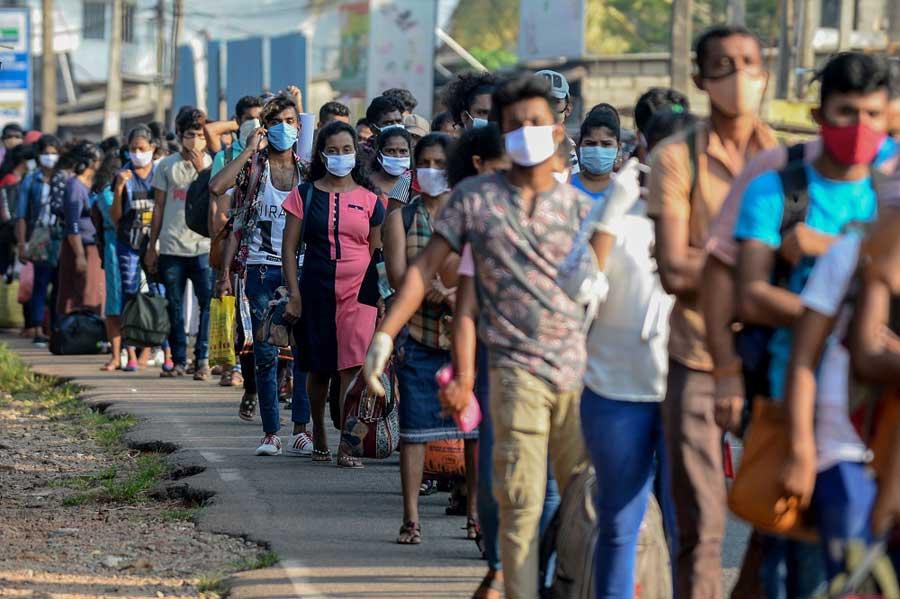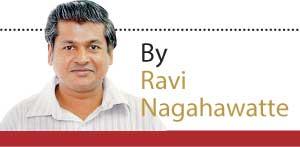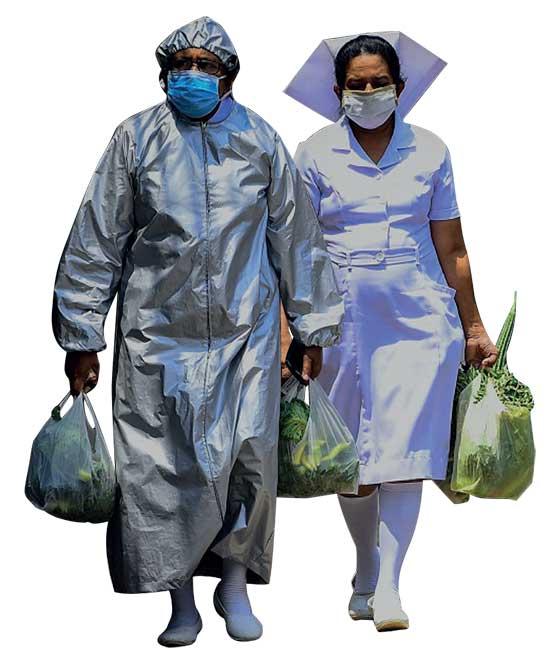Reply To:
Name - Reply Comment

The growing concerns about the Coronavirus Pandemic and the irresponsible manner in which some citizens have behaved have given us a window to check out the mentality of the islanders in general.
The state authorities were human enough to grant us some breathing space between curfew hours. But then we saw people having returned from abroad or people who visited such houses doing visiting rounds: thus exposing  scores of others to the dangers of contracting COVID 19. Now the state authorities are infuriated and we hear of orders being given to the security forces personnel to be brutally strict with those who breach curfew laws.
scores of others to the dangers of contracting COVID 19. Now the state authorities are infuriated and we hear of orders being given to the security forces personnel to be brutally strict with those who breach curfew laws.
In this backdrop we also saw religion playing a role in combat efforts: the efforts in most places coming in for severe criticism. We heard of Muslims, in their numbers, going for prayers In Beruwala. Then there was news of a Christian pastor conducting a prayer session in Jaffna; the religious leader was seen touching devotees and blessing them. All the efforts to console the disturbed minds of the people are in conflict with the thinking of medical experts; they demand everyone to remain at home till it’s medically safe to step out of home.
Where does religion stand during a Pandemic in comparison to proven medical science? Can prayers and chanting cure the sick? Or the bigger question is whether religious rituals and prayers can protect the healthy from contracting the virus? From a science perspective anything that doesn’t come within the parameters of the medical syllabus has to be termed mythical. Even if someone’s belief or thinking is false, that too has to be termed mythical; even if the individual’s framework captures all what is in the material world. There is a solid point stressed in these lines by writer Priyantha Pradeep Ranasinghe in an article penned in the Sunday edition of Ravaya and published on 2019/1/20. He cites an incident that has a political background took place in the late 1980s when the play ‘Meru’ was performed by the students of Piliyandala Madhya Maha Vidyalaya. After the drama was shown at the State Youth Drama Festival, the cast along with its Director/Producer Lakshman Nipunaarachchi (who later joined the JVP) was entertained at a home in Maharagama. The host’s dad, a UNPer, started a conversation with some of the student members of the cast who were on the same page as the JVP thinking went. The father had then said that he agreed with some of the thoughts of the JVP, but was supporting the ideologies of UNP leader Ranasinghe Premadasa for personal gains. He has even said that he opposed some of the ideas of the late president but continued to serve him. The writer reasons that this father supporting a political way of thinking which was in confrontation with his thinking amounted to living a lie. The bottom line to this is that a mythical concept exists even in the material world despite the benefits being seen and touched.
The needs of man became vivid when life became complex. As a result people needed subjects like Social sciences, Economics, Physics, Numerology, Astrology, Biology and Politics among many other streams. History has shown us that the need for subjects like Astrology, Vastu and Feng shui have arisen on occasions or times when medical science and politics have failed to serve man. Leave religion and politics aside it’s heartening to hear Sri Lanka Cricket making a Rs. 25 million pledge in support of combating COVID 19.
The present COVID 19 provides us with a similar situation. The scores of patients who died and the large numbers who are getting infected each hour around the globe underscore the fact that the pandemic is beyond the control of proven medical science. Medical experts may argue that science is all about developing on a present theory so as to eliminate doubt and arrive at proven conclusions. As with COVID 19 medics have yet not come up with a cure in combating the virus.
"Where does religion stand during a Pandemic in comparison to proven medical science? Can prayers and chanting cure the sick? Or the bigger question is whether religious rituals and prayers can protect the healthy from contracting the virus?"
At a time when there is no vaccine for COVID 19 and scientists are limited to making efforts to get a better idea of the virus, people may tend to lean on mythical practices and religion for relief.
In an environment like this the state needs the assistance of not only those who are COVID 19 free, it also needs  the support of voluntary organisations and philanthropists. The latter have come to the fore; a media mogul gave his newly built luxury hotel to be used as a COVID 19 combat centre.
the support of voluntary organisations and philanthropists. The latter have come to the fore; a media mogul gave his newly built luxury hotel to be used as a COVID 19 combat centre.
Writing more on this line of seeking community help, back in 1935, colonial Ceylon had to battle a bout against Malaria. The British rulers were late to start an action plan; hence scores of patients died. Among the dead, were mostly children and infants. Under the supervision of the Government Agent for Central Province, Reginald Edward Stubbs, as many as eight native treatment centers were set up in the Kandy District. The disease was controlled thanks to the help of many voluntary organisations.
Back to the efforts taken to combat the Pandemic in Sri Lanka, the government is heavily relying on the security forces, state medics and state resources to deal with the disease. Though the President handed over the programme to the representatives of the Buddhist order, religious leaders don’t seem to be invited to play a major role in this crusade.
In a way the state seems to have a Military grip on the country’s citizens, but not necessarily over the potentially fatal respiratory illness. However this is not the time to talk about democracy. We see the government obtaining more loans as it struggles to pay off foreign debt commitments which now amount to over Rs 10 trillion. But on the other hand despite mounting debts the regime has offered US Dollars 5 million to the SAARC Corona Combat Programme.
Amidst the gloom, when the focus is on who could be next on line to be snared by the pandemic, the President offers a pardon to a criminal who was sentenced to death for taking away the lives of many Tamil civilians during the civil war. We also read about many people who failed to adhere to quarantine regulations and risked the lives of many others.
We all need to be better human beings; that’s the most important life lesson this pandemic is teaching us and we can’t miss it.